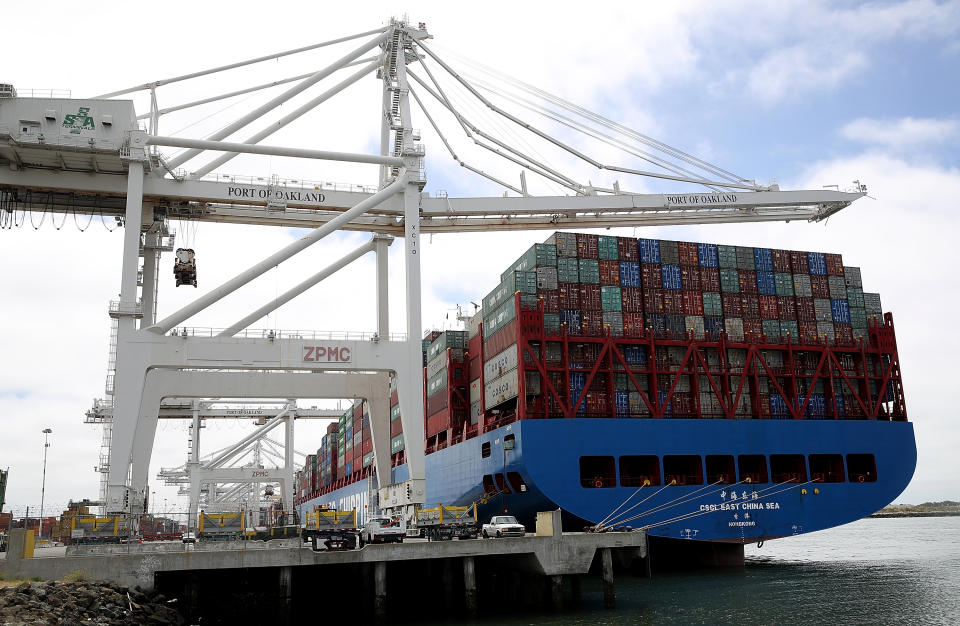How Trump's new tariffs on China will distort global trade

The US decision to impose tariffs on another $200bn worth of Chinese goods could have major repercussions on nearly every country on the planet as international companies readjust their sales and supply chains.
At home, Americans should expect higher costs. In China, exporters are preparing for a further sales slump. And the rest of the world is also bracing for the blowback.
Economists and trade experts have outlined a myriad of knock-on effects that could be felt in countries around the world, including a deterioration in business sentiment, cheaper products on international markets and a ramp-up in industry lobbying efforts.
Here’s what to expect:
The real pain will begin in January
The Chinese currency has declined by 9% against the US dollar since April, meaning a new 10% tariff on thousands of Chinese items may not have as much of a direct impact as people may expect, said Rajiv Biswas, IHS Markit’s chief economist for the Asia-Pacific region.
The tariff would simply negate the benefits of a weaker yuan for American importers.
“For now, there’s no impact. The US administration probably understands that,” he told Yahoo Finance UK.
But the threat of tariffs jumping from 10% to 25% at the start of 2019 is the real concern.
That’s when American businesses and consumers would really feel the pain, with higher costs for items including soy sauce, seafood and sewing machines.
In the meantime, Nomura economists have noted that Americans are becoming increasingly aware of the costs of this trade war, which could hit consumer and business sentiment and drag down the economy.
Lower prices abroad?
Trade experts have outlined that the new tariffs could redirect the flow of Chinese goods away from the US and towards other markets, possibly leading to excess supplies and cheaper prices in other nations.
“Yes, Chinese products may be diverted to other markets. They may be sold at below-market prices,” warned David Henig, a former UK trade negotiator and director of the European Centre for International Political Economy.
“Initially, there could be a slightly deflationary impact” as Chinese products are rerouted to other nations, warned John Hardy, a currency strategist at Saxo Bank Group.
A spokesperson at the European Commission said the EU was “monitoring the situation” to ensure there was no dumping of cheap Chinese goods into the European market, which would undercut European firms.
Henig said this situation could provide an opportunity for EU industries to complain to regional authorities about Chinese dumping and make calls for protective EU tariffs to stem the inflow of competing goods. This would present a field day for lobbyists and lobby groups, he said, while creating further trade war tensions.
Winners and losers
Biswas from IHS Markit said there could be a huge range of winners and losers across Asia as a result of these new US tariffs.
On the one hand there’s South Korea, which exports a huge amount of semiconductor chips to China and boasts one of the largest chip manufacturing hubs in the world. Korean businesses could suffer dearly if the Chinese electronic products that use Korean chips are slapped with new US tariffs, said Biswas. This could lead to a drop in demand for Korean chips and put local jobs at risk.
Similarly, Taiwan, Japan, Malaysia, Thailand and Singapore are also known for shipping a wide range of goods to China for inclusion in manufactured items that are subsequently shipped abroad, he said. They could also be hit by new US tariffs.
Other low-cost manufacturing nations could benefit though as multinational firms shift their production away from China to avoid tariffs. Vietnam, Bangladesh, Brazil and Mexico could all get more business, Biswas said.
In some cases, US tariffs could both help and hinder different sectors in a single Asian country, he said. “It’s a very complicated story about how these tariffs will affect [global] supply chains.”

 Yahoo Finance
Yahoo Finance 